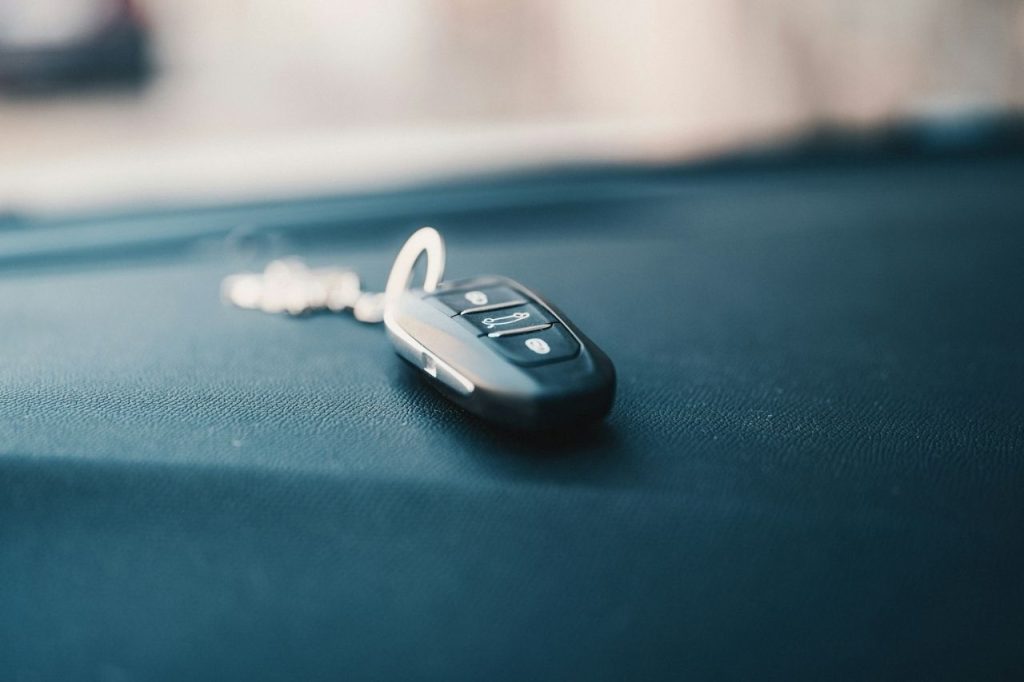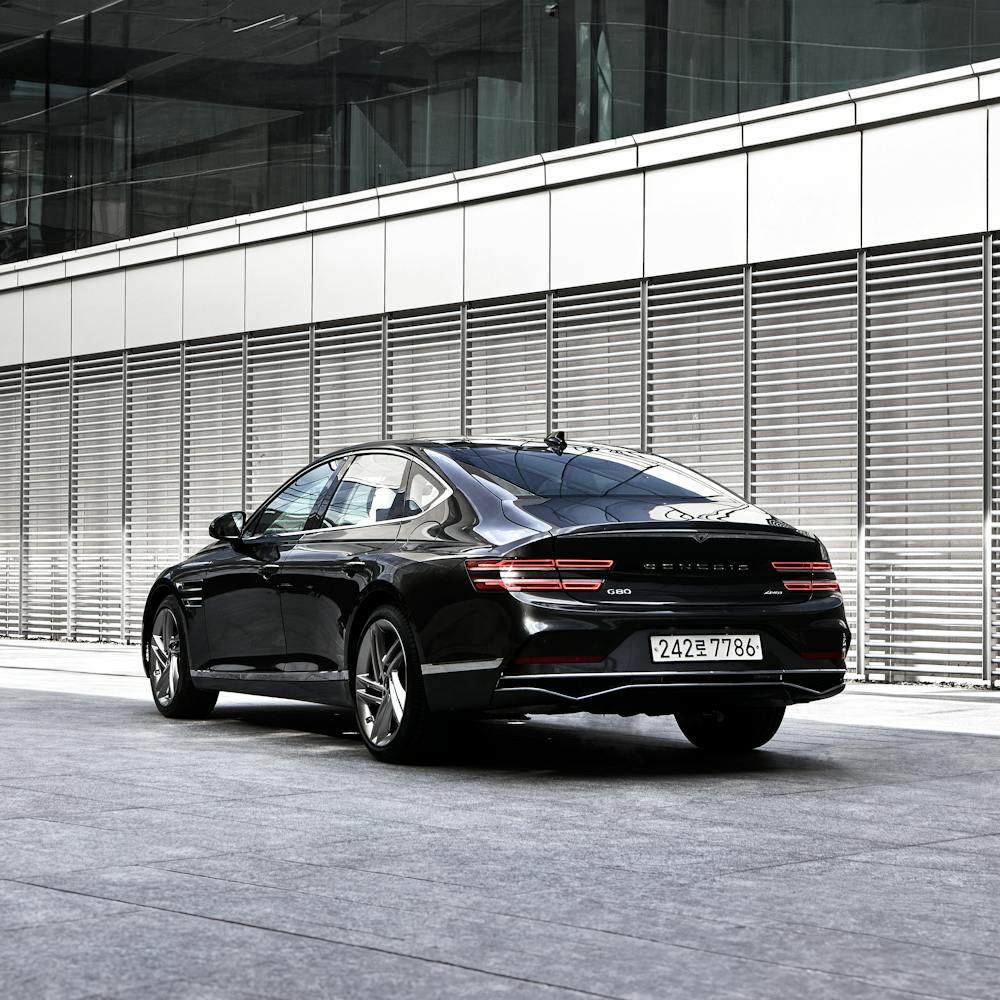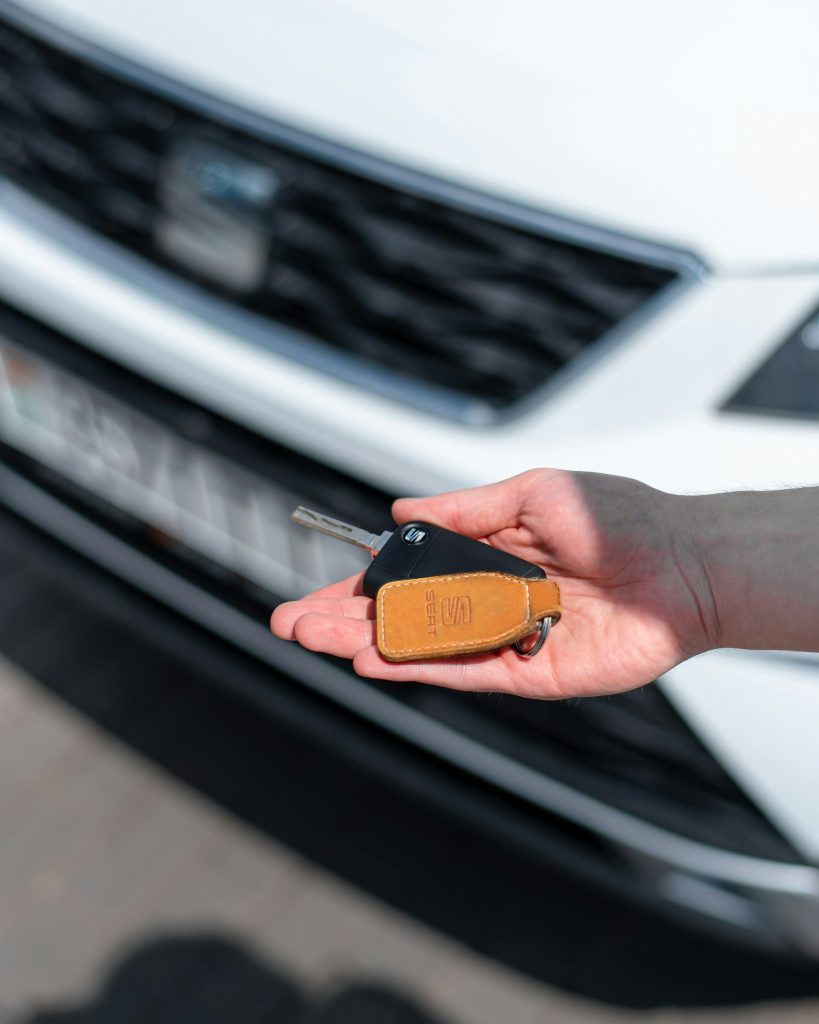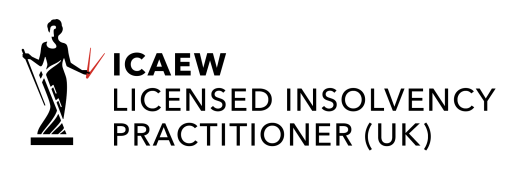Realising the company needs to close is hard enough. When there are vans or cars still on hire purchase, it can feel even more stressful. You might be worried about who owns the vehicles, what happens if you stop paying, and whether you could be personally chased for any shortfall.
You do not have to work this out on your own. There are clear rules on how hire purchase is treated when a company closes, and there are usually several options to explore. At Anderson Brookes, our licensed insolvency practitioners help people in this position every day. We explain your options in plain English, deal with creditors on your behalf, and guide you through a closure process that is fair, regulated and as low-stress as possible.
In practice, several outcomes are common:
- The vehicle is handed back to the finance company
- The vehicle is sold, usually with the lender’s consent, and the sale proceeds are used to reduce or clear the finance
- Very occasionally, the vehicle is kept for a short time if it is essential to complete specific work that benefits creditors
If the sale of the vehicle brings in less than the amount still owed, the difference is a shortfall. In a CVL, that shortfall usually becomes an unsecured claim alongside other creditors. If there is a personal guarantee, the lender may still pursue the guarantor separately.
A structured CVL process leaves a clear record of what was agreed, how each HP vehicle was dealt with and why. That reduces uncertainty for you, the finance companies and other creditors.

How Hire Purchase Works for Business Vehicles
Hire purchase (HP) is a way to spread the cost of a vehicle. You usually pay a deposit, then monthly instalments, sometimes with a final payment at the end. You can use the vehicle for business from day one.
What often surprises people is that, under a typical HP or conditional sale agreement, you do not own the vehicle until the agreement is fully paid. The finance company remains the legal owner, even if:
- You are the registered keeper
- You insure and tax the vehicle
- The vehicle is used only in the business
Because of this, a HP vehicle sits in an unusual position on the balance sheet. The finance company has strong rights over the vehicle, but the company may still have some value tied up in it.
In simple terms:
- Positive equity means the vehicle is worth more than the outstanding finance
- Negative equity means the outstanding finance is higher than the vehicle value
If the company is trading normally, this might not feel important. If the business is under pressure or needs to close, it matters a great deal. The level of equity affects what can be done with the vehicles, whether there is likely to be a shortfall, and how a lender or an insolvency practitioner will treat the agreement.
Can You Close a Limited Company that Still Has HP Vehicles?
In most cases, yes. You can close a limited company that still has vehicles on HP, but the HP agreements must be handled properly.
The finance on each vehicle is a company liability. At the same time, the company has the benefit of using the vehicle and may have some equity in it. When we review your position, we look at the full picture: what is owed, what the vehicles are worth, and whether there is any real equity once costs are taken into account.
If the company is insolvent, HP lenders sit alongside your other company debts. They are creditors with specific rights over the vehicles. In a formal process, the insolvency practitioner will contact the HP providers, check the balances and agree how each agreement will be dealt with.
Problems tend to arise when directors try to close a company informally and simply ignore HP. Finance companies are usually quick to object if they see a strike-off notice, or if payments suddenly stop without explanation. That can lead to more pressure, personal stress and, in some cases, closer scrutiny of recent decisions.
Handled properly, HP agreements become one part of a wider plan. With clear records and early advice, it is usually possible to close a limited company with vehicles on HP in an orderly way, with a clear outcome for each agreement and a better understanding of who is likely to be liable for any shortfall.


Strike Off vs Liquidation: Best Closure Route with HP Vehicles
When a company needs to close, people often think about two routes:
- Applying to strike the company off the register
- Placing the company into liquidation, usually a Creditors’ Voluntary Liquidation (CVL) if it cannot pay its debts
A voluntary strike-off is designed for companies that have stopped trading and have no meaningful debts or ongoing obligations. It is simple and low cost. For a business with vehicles on HP and other outstanding liabilities, it is rarely appropriate.
The finance company, HMRC or any other creditor can object to a strike-off if they are still owed money. If a company is struck off while there are unpaid debts or finance agreements and creditors later discover this, they can apply to have the company restored. When that happens, questions are often asked about what happened to the company assets after a strike-off, including any vehicles or equipment that were still in use or were transferred out.
In a CVL, an insolvency practitioner is appointed as liquidator. Their role is to collect in and deal with assets, identify and contact creditors, and handle agreements such as HP. This formal structure gives HP providers and other creditors confidence that the process is being handled fairly, and it gives you someone on your side to guide you through a very emotional decision.
Choosing between these routes is not just a formality. If there are HP vehicles, other asset finance, tax arrears or supplier debts, a full review is usually needed before deciding how to close the company.
Sectors We Support
We support company directors in every sector, from construction firms and logistics companies to pubs, cafés, restaurants, hotels, retailers and manufacturers. Our advice is always clear, confidential and shaped by real experience in your industry. Whether you’re dealing with unpaid tax, supplier pressure or falling income, our team understands the challenges and will guide you through the best next steps.
What Happens to HP Vehicles in Liquidation?
In a Creditors’ Voluntary Liquidation, HP vehicles are treated differently from assets the company owns outright. In most HP and conditional sale agreements, the finance company remains the legal owner until the agreement is fully paid. That means the vehicle is not a straightforward asset for the liquidator to sell without involving the lender.
Once a CVL is proposed, the liquidator will typically:
- Review all HP and finance agreements
- Confirm balances, arrears and settlement figures with each finance company
- Check the condition and likely market value of each vehicle
- Decide, with the finance companies, what should happen next
At the same time, the liquidator has to consider all company assets during liquidation and how best to realise value for creditors as a whole. HP vehicles are part of that picture, even though the HP provider has first call on them.

Solvent Closure and Keeping or Transferring HP Vehicles
Not every company that wants to close is insolvent. Sometimes the business can pay its debts in full, but trading has run its course. In that situation, having vehicles on HP does not stop you closing the company, but it does need some planning.
If the company has enough cash, one option is to settle the HP agreements before closure. Once the finance is cleared, the vehicles become straightforward assets that can be sold or distributed. This gives more control over timing and price and avoids later questions about ownership.
Another route is to speak to the finance company about transferring the HP into another name. That might be you personally or a different business that will keep using the vehicle. The lender has to agree and will usually want to check affordability, but it can be a practical way to keep an essential car or van without keeping the company open.
For some solvent companies, a Members’ Voluntary Liquidation can be a tax efficient way to close and release remaining value. In that case, HP agreements and vehicles are reviewed as part of the wider plan, to make sure all liabilities are settled or properly transferred before final distributions are made.
In both solvent and insolvent situations, the aim is the same. To close a limited company with vehicles on HP in a controlled way that reflects the real figures, treats creditors fairly and gives you a realistic outcome.
Key Risks When You Close a Limited Company With Vehicles on HP
When a company is already behind on HP payments, pressure can build quickly. Calls and letters may increase, and the finance company might threaten to take the vehicle back. Independent guides from organisations such as Citizens Advice explain broadly how HP repossession works, but the exact position depends on your agreement.
If your company is in arrears, the finance provider’s rights will depend on how much of the agreement has been paid and the terms of the contract. In many cases, they can ask for the vehicle to be returned. If you do not agree, they may go to court to seek permission to repossess it, especially if the vehicle is kept at home or on private land.
Some people worry about visits from bailiffs or High Court enforcement officers. If a creditor already has a court judgment, they may instruct enforcement agents to try to seize goods. Vehicles on HP can be a grey area, because the finance company is usually the legal owner, even if the vehicle is parked on your drive. Being able to show the HP agreement and up to date balances is crucial.
There are also wider risks for directors to be aware of:
- Moving or selling assets, including HP vehicles, at less than a fair price
- Favouring one creditor over others, for example paying back a loan to a friend while suppliers remain unpaid
- Allowing a company to drift on when there is no realistic prospect of recovery
If a company is struck off while there are still assets or liabilities in the background, questions can arise later about who has benefited from them. Our insolvency glossary explains technical terms in simple language, and we can talk through how the rules apply in real life so you can avoid common pitfalls.
Get support from licensed insolvency practitioners at Anderson Brookes. We’ll help you through the process of closing your limited company. Call us now on 0800 1804 935 or email advice@andersonbrookes.co.uk.
Practical Steps to Close with Confidence
When you are under pressure, it helps to have a clear, simple plan. If you are thinking about closing the company and still have vehicles on HP, you can work through these steps.
- Gather the paperwork
Collect HP agreements, statements, any default or arrears letters, and any documents that mention personal guarantees. - List each vehicle and the key numbers
For every vehicle, note the make and model, registration, mileage, condition, outstanding finance and monthly payment. If you can, get a realistic market value. - Decide whether each vehicle helps or hurts cash flow
Ask whether the vehicle is genuinely needed at this stage. If the work that uses it is slowing down or has stopped, the monthly payment may simply be adding to the strain. - Look at the wider position, not just the HP
Put the HP alongside other creditors, tax arrears, leases and loans. This helps show whether the company is still viable or whether a controlled closure is the safest option. - Take regulated, professional advice
Before handing vehicles back, selling assets or applying to strike the company off, talk everything through with a specialist. We can review your figures, explain how different closure options would affect the HP and other debts, and outline what is likely to happen in each scenario. For further general guidance on insolvency procedures, the government’s options when a company is insolvent page is a useful starting point. - Agree a route forward and let us handle the conversations
Once you understand your options, you can choose a route that fits your situation. From there, we can speak to finance companies and other creditors for you and work through each vehicle one by one.
If there are wider personal debts in the background, free charities such as National Debtline can also offer independent support alongside the specialist advice we provide on company closure.
Free Confidential Advice & Quote


FAQs: Vehicles on HP and Company Closure
Can I just stop paying and let the finance company take the van?
You can stop paying, but there will be consequences. The finance company will usually ask for the vehicle back, arrange a sale and add fees and interest. If the sale does not clear the balance, the shortfall in an insolvent liquidation usually becomes an unsecured claim. In a solvent situation, they can still pursue the company and may call on any personal guarantees.
If the HP is in my personal name but the company uses the vehicle, what happens?
If the agreement is in your personal name, you are normally the one the finance company looks to for payment, even if the vehicle is used mainly for the company. When the company closes, the HP does not automatically fall into the liquidation in the same way as company borrowing, although how the vehicle has been used and paid for can still be relevant. We would look at who is named on the agreement, who has been making the payments and whether the company owes you anything in return.
Will I be personally liable for any shortfall on the HP after liquidation?
If the HP is a company agreement with no personal guarantee, any shortfall after the vehicle is sold will usually sit as an unsecured claim in the liquidation. If you have signed a personal guarantee, the finance company can still pursue you for some or all of that shortfall, even after the company has closed. Reviewing the paperwork early helps avoid surprises.
Can I buy the HP vehicle from the company before or during liquidation?
Often, yes, but it must be handled correctly. The finance company needs to agree, because they are normally the legal owner until the agreement is settled. There also has to be a fair price, backed by sensible valuations, so other creditors are not disadvantaged. In a liquidation, the liquidator has to be able to show that any transfer was at market value and properly documented.
Get Support with Company Closure
Closing a limited company with vehicles on HP can feel daunting. There are lenders to deal with, different types of finance, and worries about what happens if the numbers do not add up. It is a lot to manage when you are already under pressure.
With the right help, it is possible to close a company in a controlled way, understand what will happen to each HP vehicle and reduce the risk of unpleasant surprises later. At Anderson Brookes, we:
- Review your vehicles, HP agreements and other debts in detail
- Explain your options in clear, plain language
- Help you decide whether liquidation, another formal process or a solvent closure is right for you
- Deal directly with finance companies and other creditors on your behalf
Everything starts with a simple, confidential conversation. If you are worried about how to close a limited company that still has vehicles on HP, get in touch with us. We will give you calm, expert guidance and a clear plan, so you can move forward with practical solutions rather than ongoing worry.

